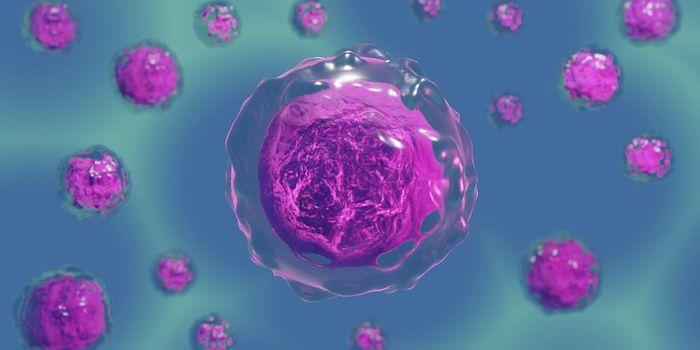Targeting Energy Production in Cells to Fight Leukemia
Much like how a car needs gasoline to run, cells also need a fuel source. Most human cells in the body use oxidative phosphorylation to produce energy. However, cancers often undergo a shift into a type of fermentation for energy production.
This shift is called the Warburg Effect. While oxidative phosphorylation (what most cells use) is far more efficient in producing energy, fermentation uses far fewer resources. This production method allows cancer to grow very quickly in relatively dense populations - such as in a tumor - and not be restricted by its resource need.
Chronic lymphocytic leukemia is a rare type of white blood cell cancer that commonly occurs in older adults. Unlike most other cancers, this leukemia runs does not undergo the Warburg Effect. This means these cancer cells still use oxidative phosphorylation, which can be a delicate process where any problems can induce cell death. Many scientists also see it as a great target for possible therapeutics.
In a new study out of the University of Genoa in Italy, a team decided to investigate how the drug berberine affects chronic lymphocytic leukemia cells’ growth and survival in vitro. Berberine has been shown to inhibit a critical component of the oxidative phosphorylation pathway. Combined with cancer’s often stressful cellular environment, treatment with berberine could act as an anti-cancer agent.
Chronic lymphocytic leukemia functions in an inactive, dormant state and an activated state. Activation sees the dormant cells proliferate rapidly, obviously something we don’t want from cancer. In vitro experiments of adding berberine to dormant chronic lymphocytic leukemia cells showed that it could inhibit activation. Berberine also preferentially affected the leukemia cells over healthy lymphocytes, although there was still some impairment of growth seen in healthy, activated lymphocytes.
The team suspected berberine’s effects on oxidative phosphorylation might perpetuate the anti-cancer effects. They found that the proton gradient – a critical part of the last step of oxidative phosphorylation - in berberine treated cells. Without this gradient, the cell’s energy production essentially grinds to a halt. If not repaired in time, the cell will usually undergo cell death.
This study showed that berberine could be used to impair the growth of activated chronic lymphocytic leukemia cells. The mechanism was isolated, disrupting the proton gradient during oxidative phosphorylation, leading to programmed cell death. They attempted to use berberine in conjunction with another chronic lymphocytic leukemia drug candidate with mild results. Never the less, berberine represents a possible pathway for new therapeutics in treating similar cancers that do not undergo the Warburg Effect.
The study concludes, “We found that BRB was cytotoxic to quiescent CLL cells and, most strikingly, that the drug inhibited leukemic cell activation induced by microenvironment stimuli.”
Sources: Nature Scientific Reports, Curios









